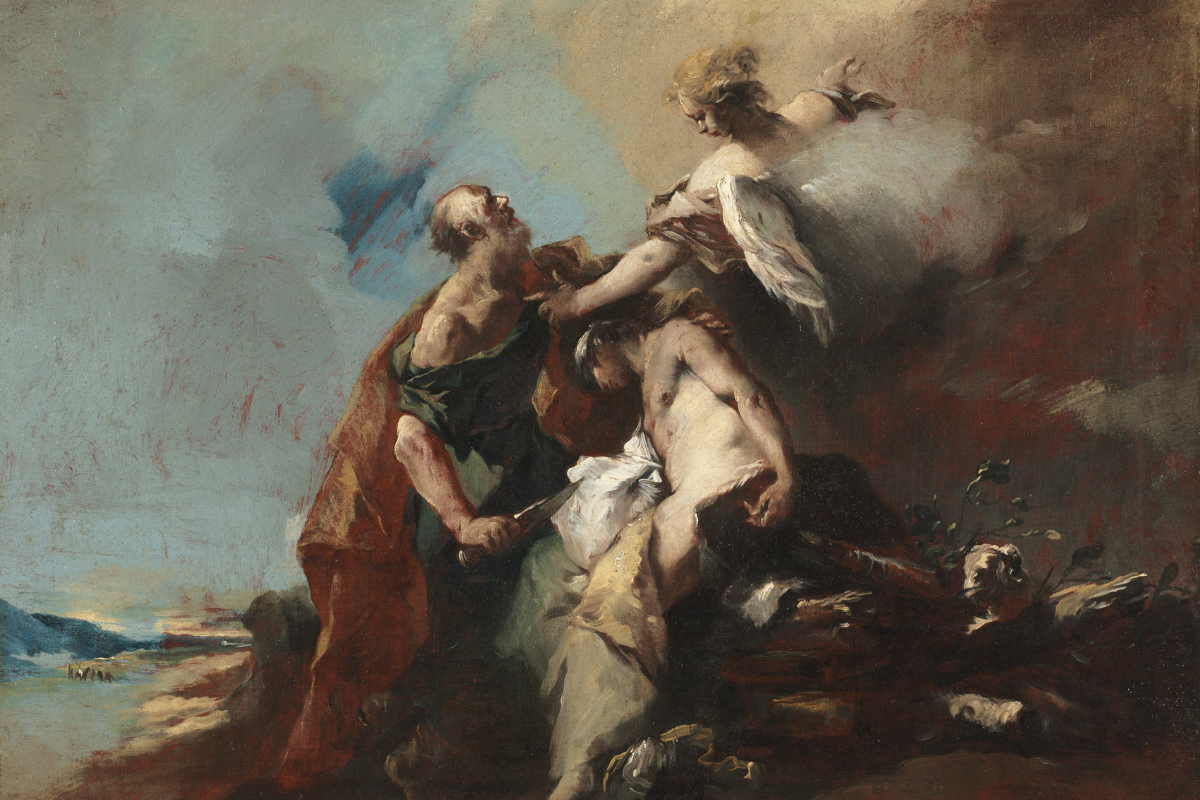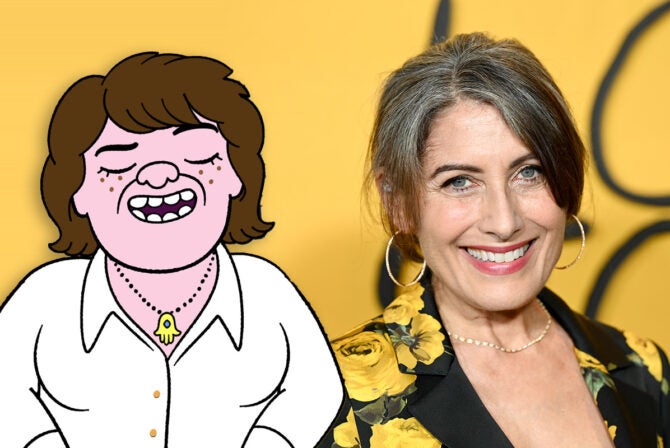Of the many horrific stories in the Torah, I think it may be the worst. God decides to challenge Abraham’s loyalty by asking him to kill his son Isaac. Abraham agrees! Together, they journey to the top of a mountain and things escalate to the point where Abraham is holding a knife directed towards the flesh of his long-prayed-for Isaac, whose name means “laughter,” only to be stopped by God at the last minute. “Lay not thy hand upon the lad…for now I know that thou art a God-fearing man….” Test passed. Nobody dies.
This story is read during Rosh Hashanah, and for years I, like many fellow temple-goers, would suffer through this viscerally upsetting test of faith. Rabbis did their best to give it context and meaning, but it always felt like a mixture of apologetics and theological gymnastics and very few managed to stick the landing. Surely, I thought, the divine-human connection could have been explored in another genre, one that doesn’t involve kidnapping and weapons.
Then I had kids and my experience of the story radically changed. Shockingly, it was for the better.
I saw, for the first time, the binding of Isaac through the parental lens and discovered a truth in it I needed to hear. We can be connected to our children and have a spiritual life.
Abraham was told by God that he could keep a connection to the divine and have a family and therefore I, the new parent who felt like parenting was interrupting all things contemplative and soulful, could too. The traumatic nature of the story tells me that negotiating these two modes won’t be easy. It’s not. The story also tells me that my relationship with my kids and my relationship with something I sometimes call God are two parts of one tangled, murky whole that I have come to call faith. Maybe the act of care is not oppositional to worship, an interruption to accessing the big tamale. Maybe it is a profound channel for it.
I’m close to 12 years into this whole parenting thing and am here to tell you that I was right. Parenting is a deeply spiritual process, one that has brought me closer to the divine than anything else.
Now to be clear, I don’t find every moment of parenting as holy. While the chore-reminding, the lunch-packing, the go-to-your-room-you-little-#$@$ disciplining may have big picture noble aims in the long arc of a life — we are trying to raise good people here! — in the moment it tends to feel profane.
But, there are moments with my children during which the whole concept of “b’tselem elohim,” or the idea in Genesis that God made humans in the image of God, has never felt so real. When I say the Shema with them at night, in their beds, under the covers, twinkly lights up above, it sometimes has the electricity of a week-long meditation retreat or the entire traditional Saturday morning service. Such moments can be sweet, yes, but their power is much bigger than sweetness. I hold their hand, recite ancient words about oneness and faith, and the enormity of it all — the awe, the terror, the chance, the destiny, the hope, the despair — comes flooding in. In their bed, doing the most minimal of praying, I come face-to-face with the sheer mystery of existence, of love and hate, life and death. I have experienced many other moments like this, moments I dig into in my book, in which old rituals are given a new life in the context of caring for others.
That care can be deeply spiritual is not something most religious authorities have acknowledged, and certainly not throughout history. In fact, parenting and other forms of care have long been seen as hindrances to serious worship or religious leadership by most of the major world religions. In Buddhism and in some forms of Christianity, the holiest folks had to leave home, and their families, to find truth. Sometimes they went to monasteries, other times they lived as hermits. They also sometimes took vows of celibacy with the assumption that marriage and family life would distract them from their relationship with God.
While the Jewish tradition is generally very pro-having families, it never really saw the tending to the families as the truly important spiritual work — the kind of work that would give you authority or power. The rabbis of the Talmud were not active caregivers, and some spent large amounts of time away from their families in order to arrive at holy truths.
When mothering is honored by religion, it is often from a distance. Mothers are praised in their sanitized, idealized versions as self-sacrificing saints. I think about all those paintings of the Virgin Mary looking beatific. I think about how her arms never seem to get tired holding chubby little Jesus. I think about Eshet Chayil, the woman of valor, who is praised weekly in traditional homes around the Friday night Shabbat table. First of all, the woman sets a doing-it-all standard that remains impossible today, even with modern technology. Second of all, Eshet Chayil, this amazing woman, was never invited into the great conversations we read about in the Talmud, never called upon to interpret law, or share her care-honed wisdom in front of her community, men-included. She is not even, in traditional households, allowed to sing her own song. Even worse, these idealized moms of the religious imagination never seem to have dark souls of the night, or be overwhelmed with earthly trials of care, the bodies, the noises and the messes. Their care takes place in pristine conditions, devoid of friction.
This error is not just one of representation. The religious architects of history are fundamentally missing the fact that the friction is where the mystical elements of care take place. Research shows that women are generally more religious than men, and one of the reasons for this is our role as parents and caregivers. Through care, we have had a front-row seat to birth and death, beginnings and endings, creation and destruction, the great paradoxes of existence. The fact that life exists at all fills us with awe. The fact that it could all end, that Isaac’s laughter and everyone else’s laughter will one day stop, fills us with a trembling fear. We know, in our hearts and bodies, it is all possible.
To anyone reading the story of Abraham and Isaac this year, I invite you to think about how Abraham was sent back down that mountain in a relationship with God and his son. You can still hate how this message is portrayed. I do, too. But you can also remember that the first major test of faith did not end with the divine demanding that we separate ourselves from our children to prove our spiritual worthiness. We do both. It’s all one. It’s all challenging. And it’s all meaningful. Now it is up to the parents and caregivers, the spiritual voices long repressed by those in charge, to show us how it’s done.








